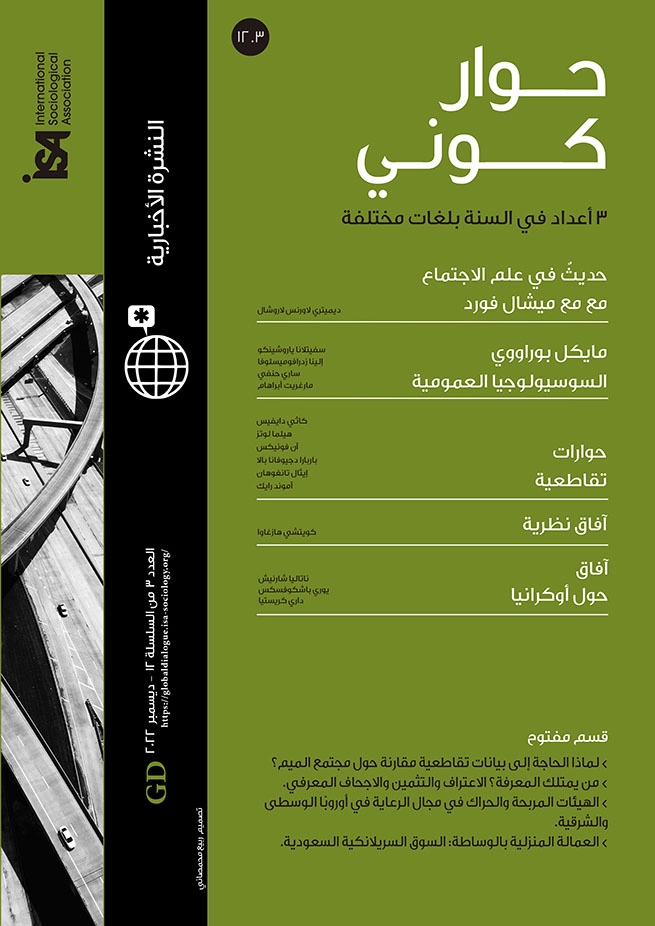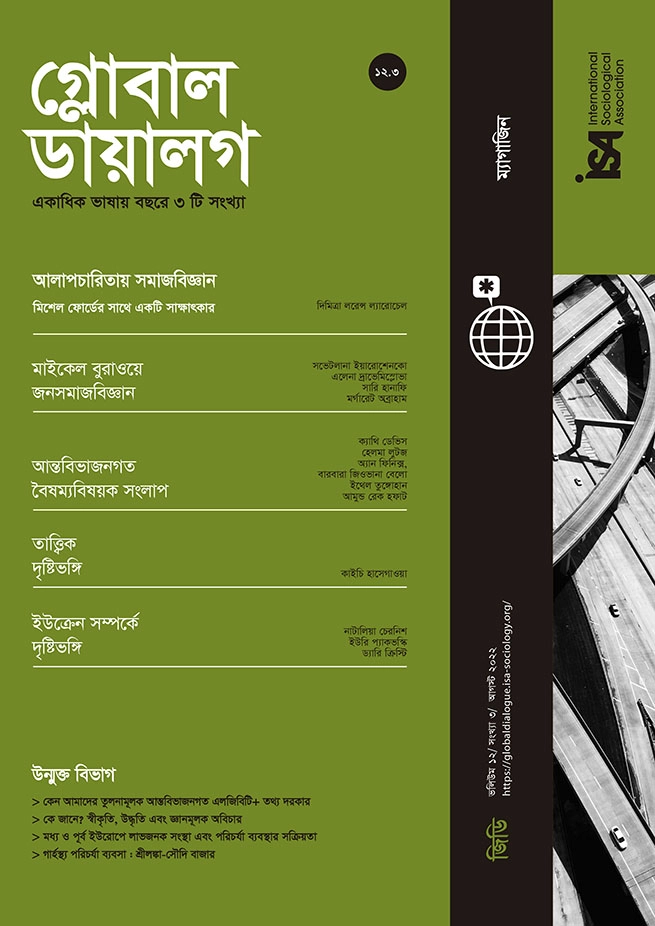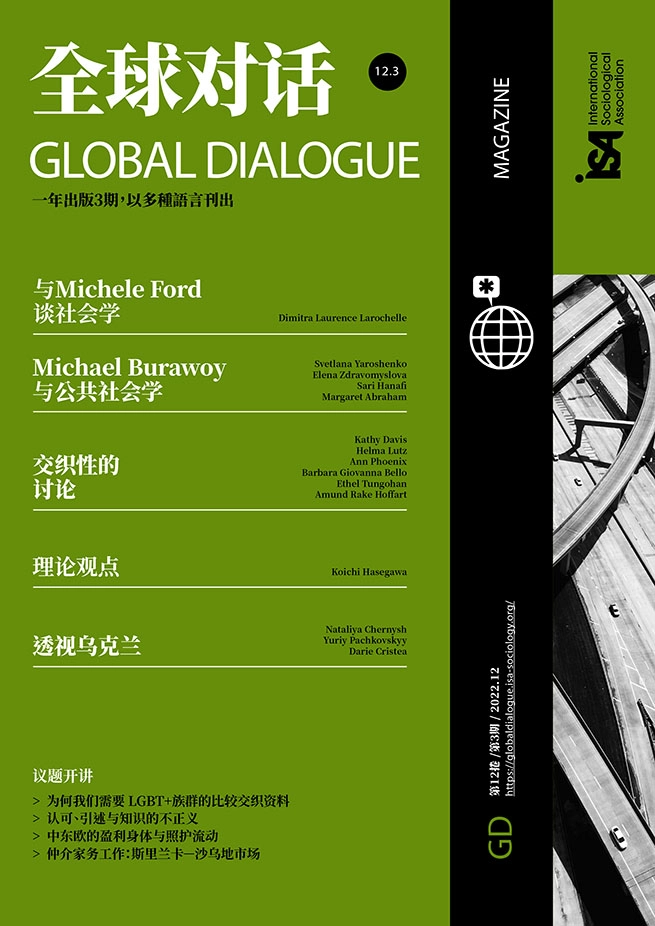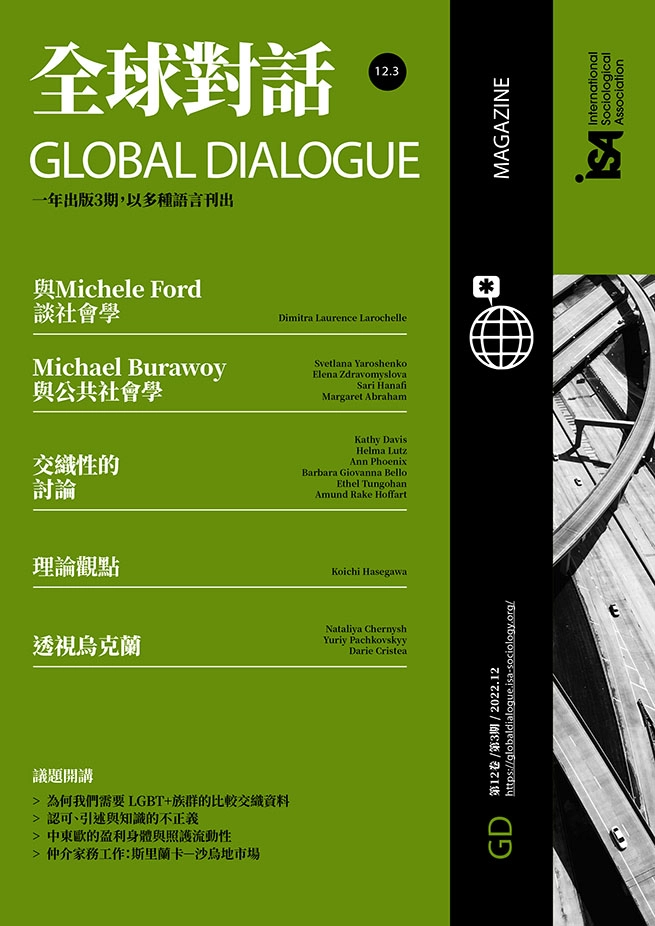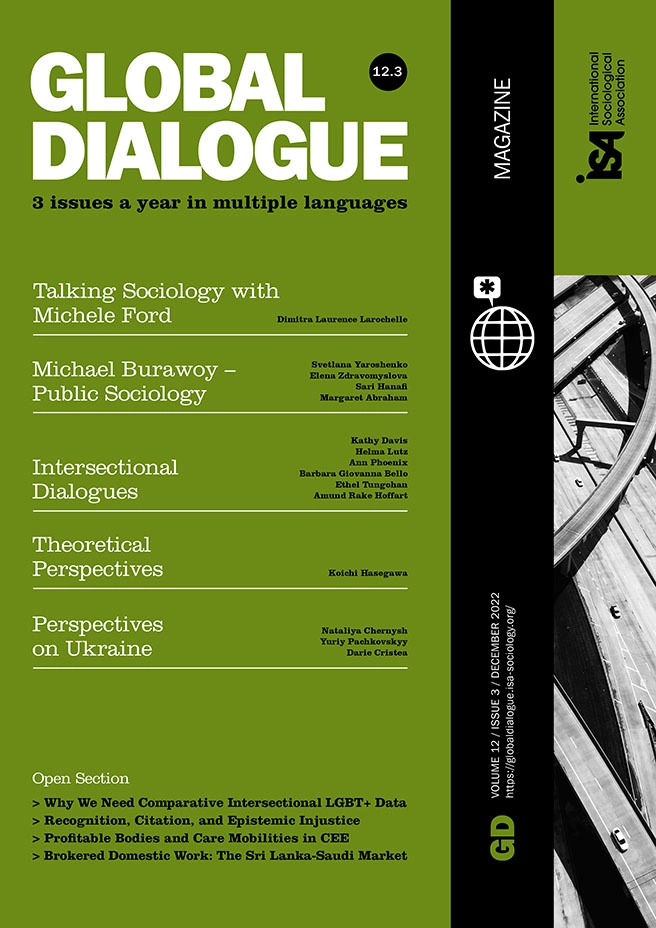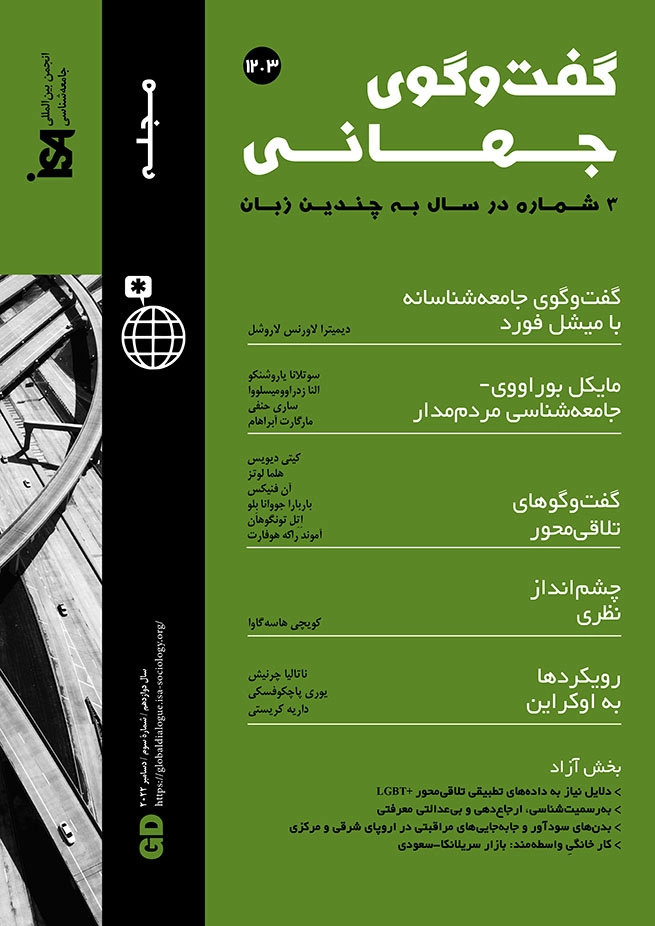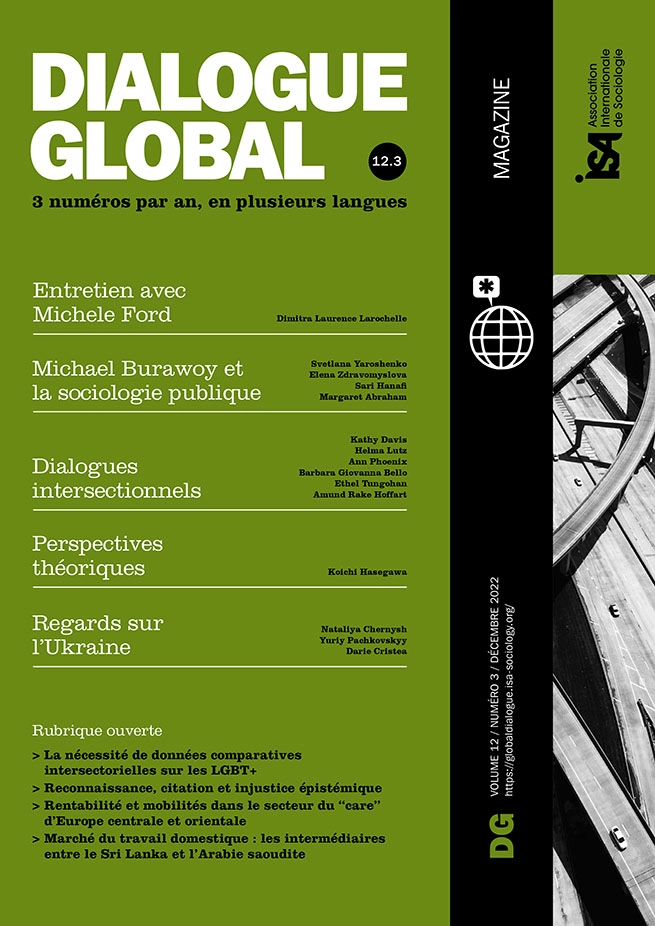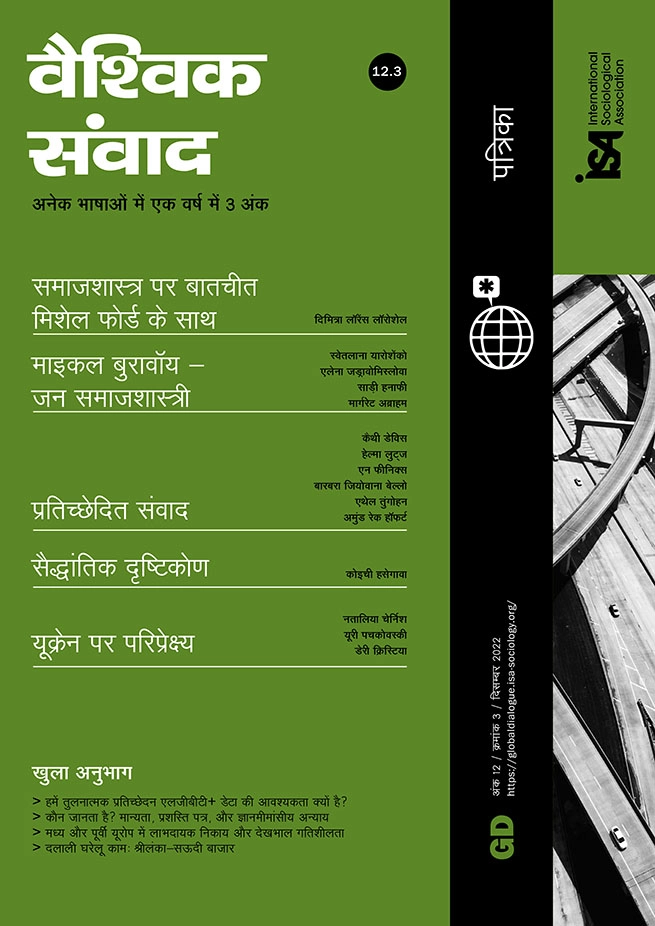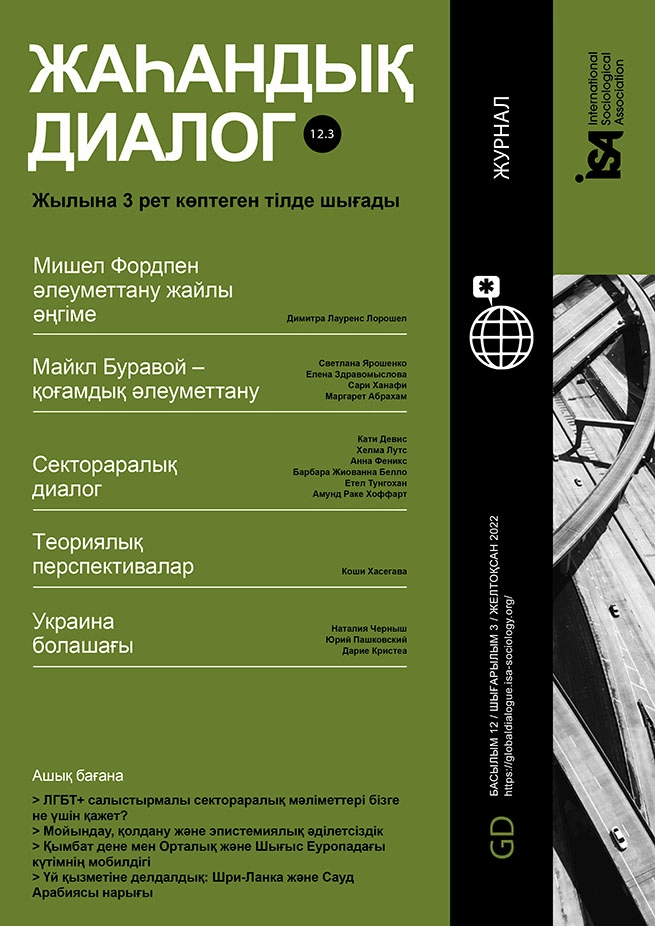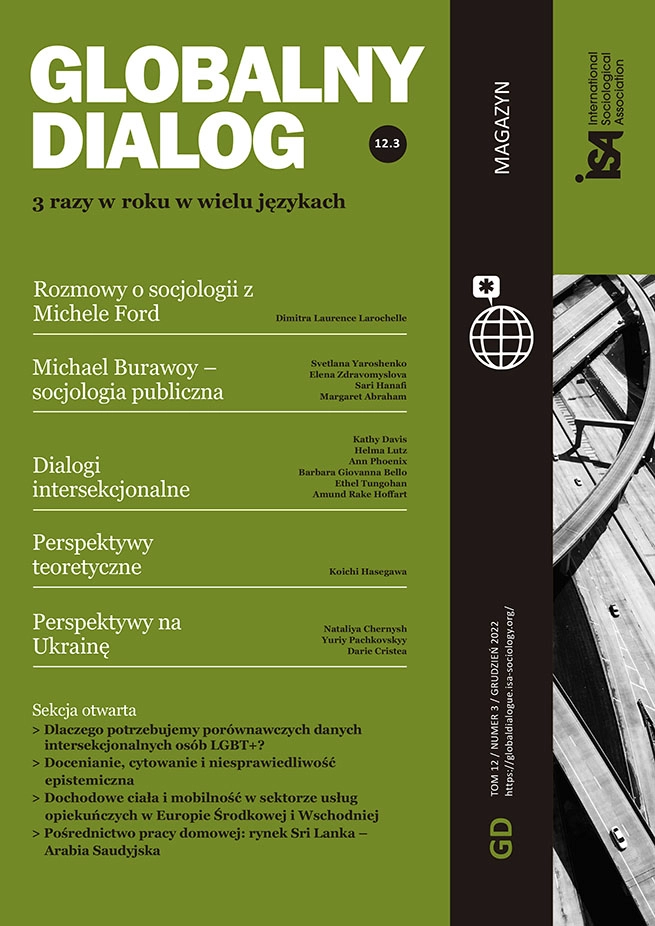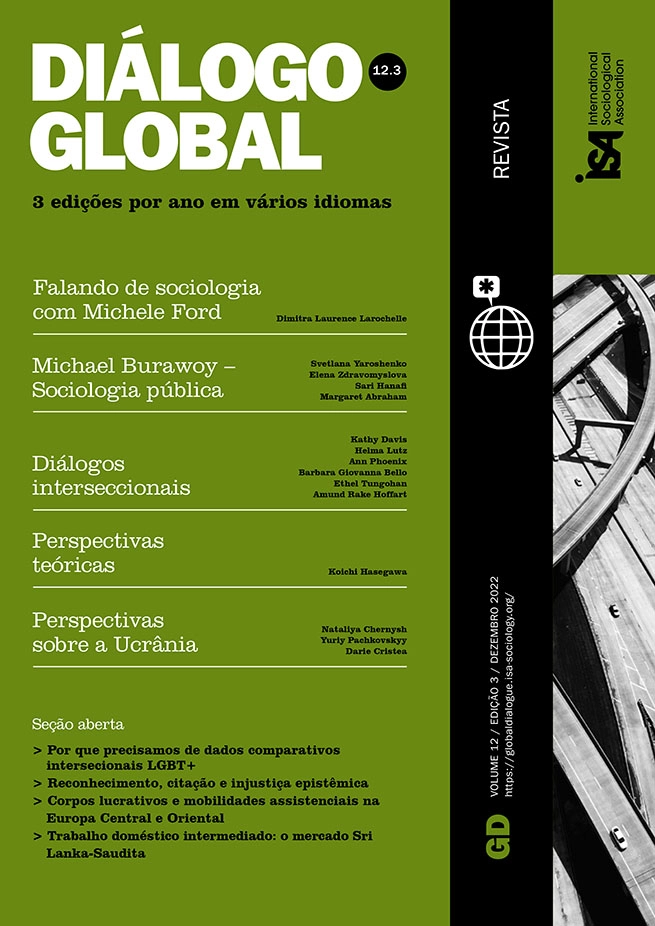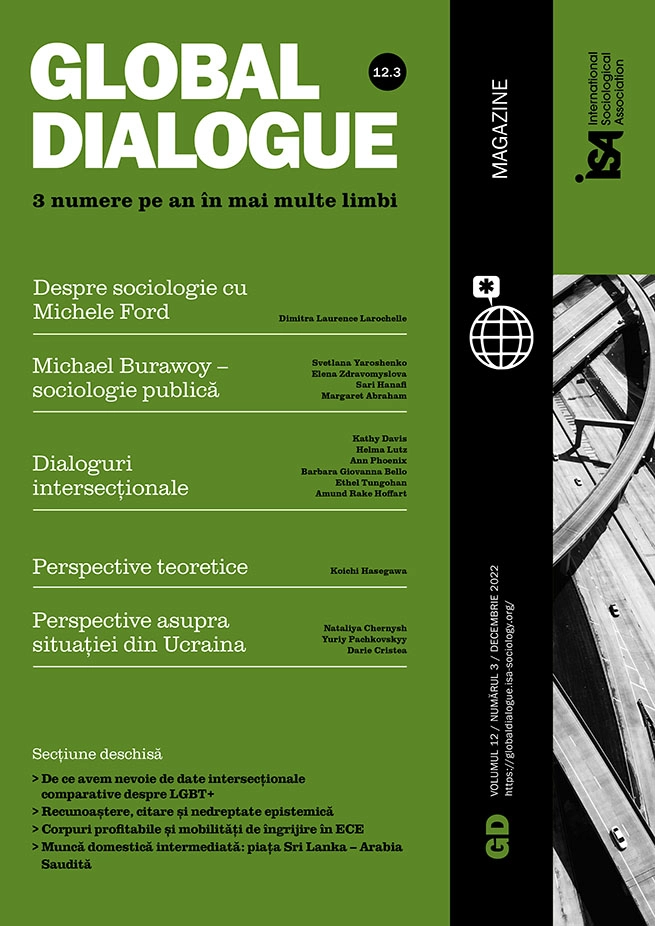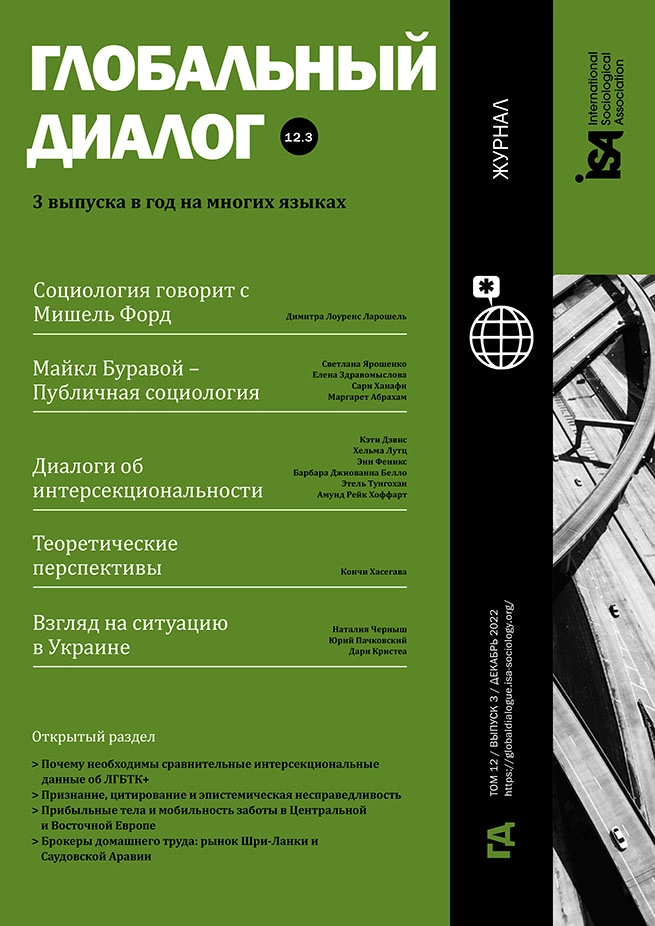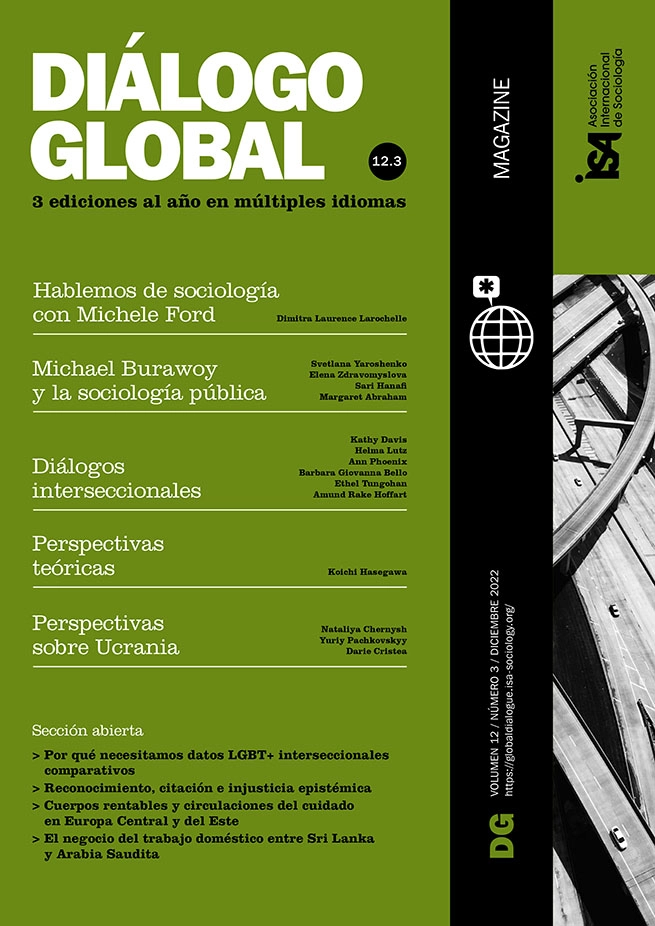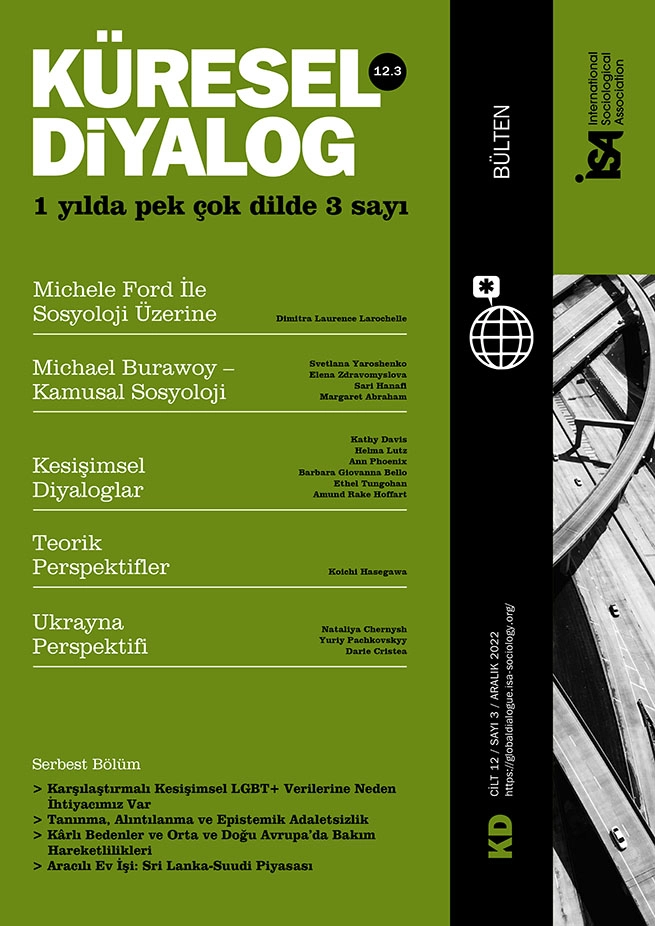Read more about Perspectives on Ukraine
How the Russian-Ukrainian War Affects Sociology
by Nataliya Chernysh
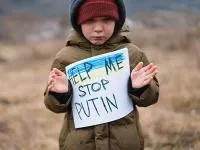
Collective and Individual Trauma
by Yuriy Pachkovskyy
October 16, 2022
I have written on other occasions about the lack of methodology in the sociology of international relations and security studies, about the too close and perhaps fatal connection with journalism. Social scientists are obsessed with a prophetic function: probably in order to prove their capacity to enter the canon of causality, they seek to predict crises, trends, and election results. And every time they are accused of being wrong: before 2020 sociology did not pay attention to a possible pandemic; the signs of the war in Ukraine were misread; in every election cycle polls are not as accurate as the press and public would like.
Two years full of surprises
The last two and a half years have been full of surprises. After the surprise of a flu like no other (the COVID-19 pandemic), came the surprise of a war that is amazingly similar to what we saw in the first half of the last century. The tragedy that war has brought to Ukraine is immense and has been much discussed. But the shock of war in the Western world, from images of refugees to images of bombings, tanks, and destroyed cities, is also one for knowledge. As in a real outsourcing exercise, people had believed for almost three decades that these issues were being dealt with by sociology, political science, international relations, strategic and security studies, military science, and diplomacy. Western society somehow saw itself removed from such concerns: weren’t there people who studied these problems and acted to prevent such things from happening again? So what have we learned, as sociologists, from what is happening in Ukraine?
A view from Romania and NATO’s relevance
Since Romania’s entry into NATO and the EU, Romanians have consistently been among the most pro-NATO, pro-EU, and pro-American peoples in the EU, and this was confirmed by Russia’s attack on Ukraine. In fact, the main global criticism of NATO in recent years has been that in a relatively stable security environment, where threats are no longer represented by states, but rather by asymmetric conflicts with non-state actors (e.g., terrorism), or isolated cases of states “quarreling” with the international order, a colossus like NATO becomes useless. Russia’s attack on Ukraine, although not formally recognized in Russia as a war, has reestablished NATO’s relevance as a guarantor of security for member states and compromised the idea of non-alignment (consider Finland and Sweden).
Parties against the system
In recent years, Europe has seen the emergence of more or less successful anti-system parties, many of which have certain populist, sovereign, or Eurosceptic dimensions. The pandemic and efforts by European states to keep it under control have provided a platform for these movements, most of which are anti-vaccine and anti-restrictions or deny the existence of the pandemic. In Romania, the Russian invasion of Ukraine reduced the appeal of such anti-system movements and increased the popularity of NATO and the EU.
There has been much speculation about the closeness of anti-system movements to Russia, or to the themes of Russian propaganda – although this is extremely complex and difficult to prove. In the last three months, we have seen that the relation of these movements to war is atypical: from not addressing the issue of war publicly, to stating that Ukraine is not very democratic (as if this could change the fact that Russia is the clear aggressor in this war); from reducing empathy with the victims of war to a concern for the Romanian minority in Ukraine, to relativizing identification of the aggressor. So the war in Ukraine is a veritable litmus test for anti-system parties and their still incomprehensible weakness for Putin’s Russia.
Realism takes its revenge
After 1990, the sociology of international relations lived in a certain end-of-history paradigm: the great wars were over, even the cold ones; liberalism had triumphed over realism. There would be one-off wars, explained by local or regional issues; but the world had become unipolar, with a series of mediocre powers unable to challenge the USA, the lone superpower paradigm. After September 11, 2001, the script seemed to have been rewritten, but only apparently. A new adversary (terrorism) appeared, an axis of evil maintained by state actors; and challenging the world order, armed struggles, etc. became acts of delinquency, not war. The international system was no longer the peaceful one (although contradicted so many times by one-off wars) imagined after 1990. An asymmetrical and unconventional enemy had appeared but militarily speaking, the world was not in great danger, fear of generalized war was insignificant in the West, and the USA/NATO was still the central superpower of the international system. The system was still liberal. American president G.W. Bush said that Romania would become the bridge to the new Russia. Behind the military and economic power of the Western world was the soft-power factor. The West was expanding because it had candidate countries knocking on its door.
But realism was about to take its toll. After 2010, China could no longer be ignored as an economic power. About the same time, neither Russia nor China seemed willing to “consent” to the world order of the previous twenty years. If we look closely at Russia, we see its invasion of Georgia in 2008; in the early 2010s, some major attempts by Russia to stop a possible Euro-Atlantic shift by Ukraine and Moldova; in 2014, the Donbass rebellion with the support of Russia, followed by Russia’s annexation of Crimea. In the West, people no longer saw the possibility of war in Europe, so these episodes passed with relative ease. Russia was no longer the country it was before 2010, it was beginning to be seen as a potential aggressor, but maintaining world order prevailed.
In February 2022, the Russian invasion of Ukraine breaks out as a clear act of aggression that is incomprehensible to the general public. The idea that Ukraine’s orientation to the West makes Russia vulnerable to NATO and the EU is morally difficult to understand: 2014 marked a definitive rift between Russia and Ukraine. Russian public support for the war is mind-boggling. But an expert can recognize the adoption of a realistic paradigm and a rejection of the liberalism that seemed to have won the interparadigm debate on international relations after almost 100 years of theoretical competition.
In addition, the war, with its missiles, tanks, helmets and machine guns – as in the documentaries and films about wars 50 years ago – made it clear that war has not disappeared. Nuclear weapons, about which international relations theory had hardly spoken since 1990, have not disappeared either. Not even the theory behind the phenomenon is new. Decades of international relations and security studies seem to have been wasted, as if we were returning to the Korean War and the Cuban Missile Crisis.
In summary, we are in a classic full-blown security dilemma. NATO is not directly involved in Ukraine, but is on high alert. Where will Russia stop? Fear of war is at its highest since 1990 in Eastern Europe. Modern warfare is not different from past one: it’s not economical, it’s not online, it’s not civilized, it’s not protective of civilians. Modern warfare is as classic as can be, only more destructive. Politicians, the military, analysts, and the general public have all lived in illusory comfort for two decades. Let’s not forget that fake news and Russian propaganda have been discussed for years, especially after 2014, but most have used the term “cyber warfare” for this, as if it replaced real war. We now see that fake news is doing what propaganda has always done: it has prepared the ground for a real war and is now helping to manage it.
Let’s not forget about Moldova
If we consider the war in Ukraine from a Romanian perspective, we must mention Moldova. Romania’s sensitivities regarding the Republic of Moldova and corresponding identity ties are known. When the dice of 1990 were rolled, Moldova remained on the other side of the “wall” again, while Romania had only one coherent political project: Euro-Atlantic integration. And it looks like the project worked. One of the current fears is related to a possible extension of the conflict in Transnistria and the Republic of Moldova (unheard of until now). Moldova is probably the best example of a state caught offside by the belief that neutrality is of some use. It is an attempt at pragmatism: Moldova tried for 30 years to maintain a functional relationship with the EU/Romania and also with Russia.
In short, I believe that the first obligation of researchers is to replace claims to predict the future with a focus on probable scenarios to which they can find appropriate answers. It is not the first time in history that reality does not match theory. After all, the main flaw of the social sciences – their multiparadigmatic character – can prove to be an exceptional quality if we know how to use it when understanding the world is more important than validating our hypotheses.
Darie Cristea, University of Bucharest, Romania <darie.cristea@sas.unibuc.ro>
This issue is not available yet in this language.
Request to be notified when the issue is available in your language.
If you prefer, you can access previous issues available in your language:
